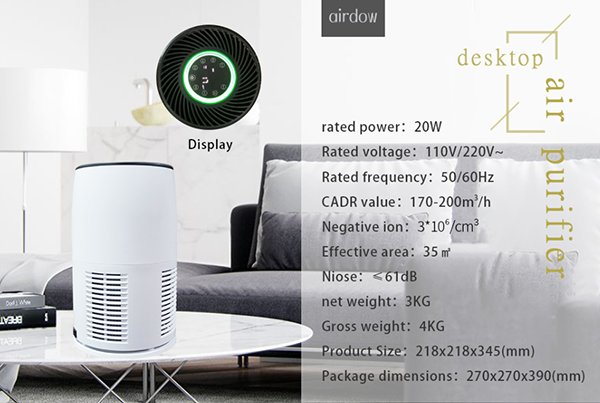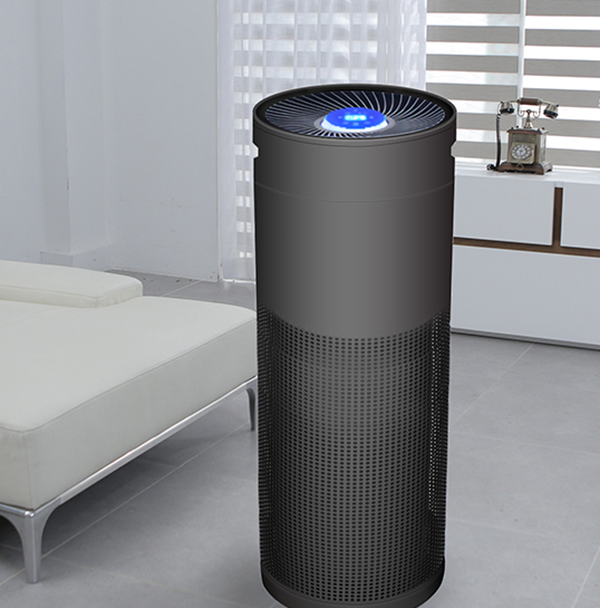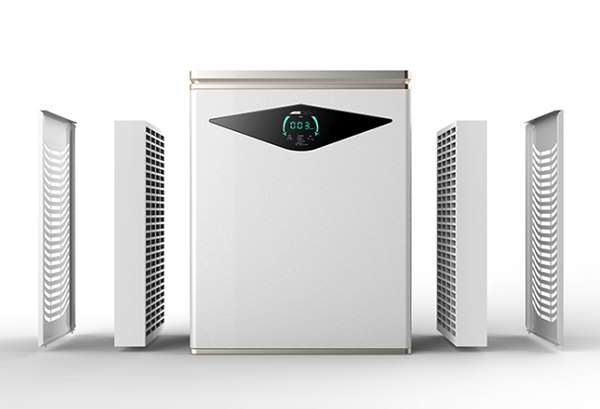Debunking Myths About Air Purifiers and Hepa Filter Air Purifiers
introduce:
In recent years, air pollution has become an important issue of global concern. To solve this problem, many people turn to air purifiers, especially those equipped with HEPA filters, in the hope of breathing cleaner, healthier air. However, doubts remain about the efficacy of air purifiers. In this article, we’ll delve into the world of air purifiers, examine their effectiveness, and debunk any misconceptions surrounding them.
Learn about air purifiers and HEPA filters:
Air purifiers are devices designed to purify the air by capturing and eliminating harmful particles, pollutants, and allergens. They work by taking in air, filtering it through one or more layers of filters, and then releasing the purified air back into the environment.
HEPA (High Efficiency Particulate Air) filters are one of the most common filter types found in air purifiers. These filters are designed to capture particles as small as 0.3 microns with an efficiency of up to 99.97%. The efficiency of HEPA filters has been proven through extensive scientific research and testing.
Efficacy of air purifier:
While skeptics think air purifiers are nothing more than gimmicky gadgets, numerous studies consistently show their effectiveness in improving indoor air quality. These devices are particularly beneficial for people with respiratory conditions such as asthma or allergies.
Air purifiers equipped with HEPA filters can remove common pollutants from the air, such as dust mites, pollen, pet dander and mold spores, reducing the risk of allergies and respiratory illnesses. Additionally, they eliminate harmful volatile organic compounds (VOCs) released from household products, creating a healthier living environment.
However, it’s worth nothing that air purifiers are not a one-size-fits-all solution. The effectiveness of each device depends on factors such as room size, type of contaminants, and maintenance of the purifier. It is recommended to choose an air purifier that suits your specific needs and consult a professional if necessary.
Debunking Myths About Air Purifiers:
Myth 1: Air purifiers can solve all indoor air quality problems.
Fact: While air purifiers can significantly improve indoor air quality, they are not a cure-all solution. They mainly target particulate matter and certain gaseous pollutants. Other factors such as ventilation, humidity control and proper cleaning practices should also be considered to achieve optimal air quality.
Myth 2: Air purifiers are noisy and disrupt daily activities.
Fact: Modern air purifiers are designed to operate silently or at minimum noise levels. Manufacturers focus on creating devices that do not interfere with daily activities and ensure a peaceful living environment.
Myth #3: Air purifiers eliminate the need for proper ventilation.
Fact: Ventilation is critical to maintaining indoor air quality. While air purifiers capture and eliminate pollutants, proper ventilation is still needed to remove stale air and replenish it with fresh outdoor air.
in conclusion:
In the pursuit of cleaner, healthier air, an air purifier, especially one equipped with a HEPA filter, is a valuable tool. Extensive research and scientific evidence demonstrate their effectiveness in reducing indoor pollutants and alleviating respiratory problems. However, it is important to understand that an air purifier is not a stand-alone solution and a holistic approach is required to improve indoor air quality. By implementing ventilation strategies and practicing good cleaning habits, we can ensure a healthier living environment for ourselves and our loved ones.
Post time: Oct-04-2023







